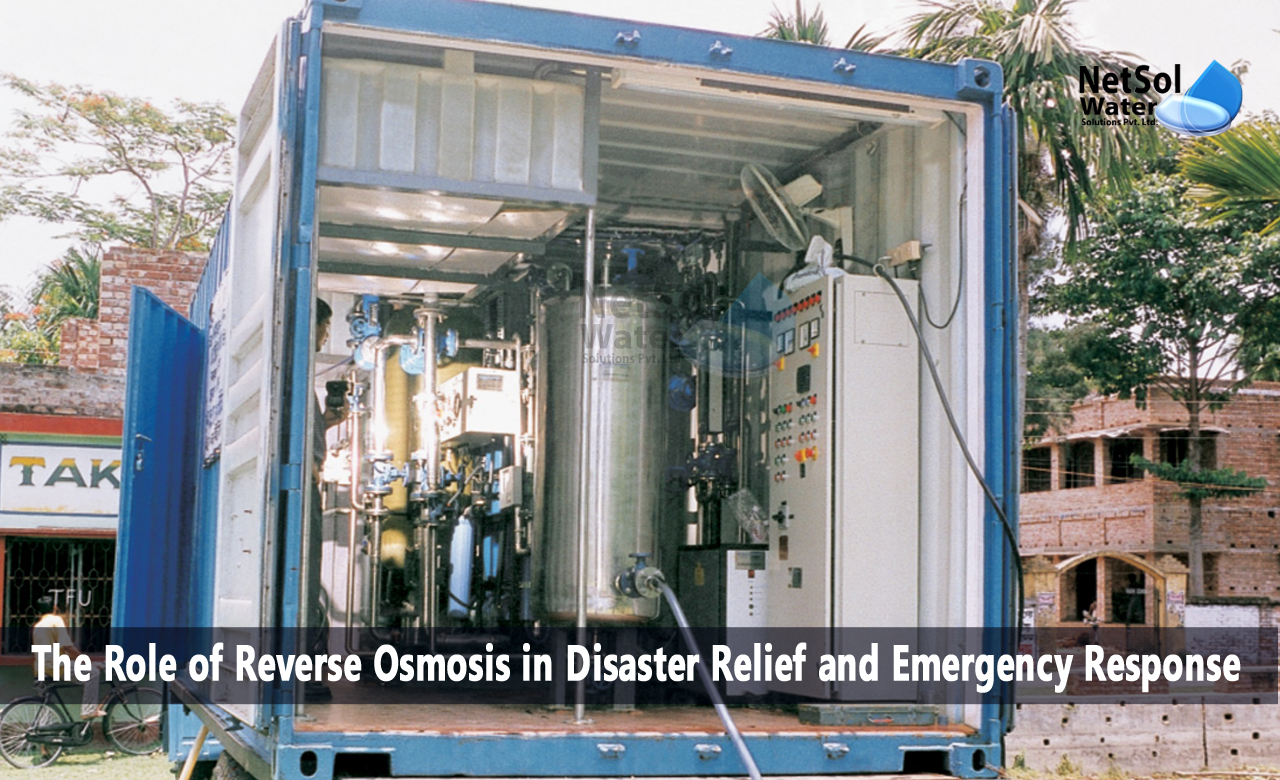Introduction:
Disasters and emergencies often result in the disruption of essential services, including access to clean drinking water. In such situations, providing a safe water supply becomes a top priority to prevent the spread of diseases and ensure the well-being of affected populations. Reverse osmosis (RO) technology has emerged as a crucial tool in disaster relief and emergency response efforts, offering a reliable and efficient solution for water purification. In this blog, we will explore the significant role of reverse osmosis in disaster relief and emergency response, highlighting its benefits and applications in these critical situations.
The Role of Reverse Osmosis in Disaster Relief and Emergency Response:
· Rapid Deployment and Mobility:
One of the key advantages of reverse osmosis systems in disaster situations is their ability to be rapidly deployed and easily transported to affected areas. Portable RO units are designed to be compact, lightweight, and quickly assembled, making them ideal for immediate deployment. These systems can be set up in temporary shelters, field hospitals, or emergency response centers, providing immediate access to clean drinking water for the affected population. Their mobility allows for flexibility in response efforts, reaching remote or hard-to-access areas where clean water is scarce.
· Water Source Flexibility:
Reverse osmosis systems are designed to treat various water sources, making them highly adaptable in emergency situations. Whether the available water source is freshwater bodies, wells, rivers, or even brackish or seawater, RO technology can effectively purify it. This versatility enables responders to utilize existing water sources in disaster-affected areas, ensuring a sustainable supply of clean water. By harnessing the power of reverse osmosis, these systems can remove contaminants, salts, bacteria, and other harmful substances, providing safe and potable water to those in need.
· High Water Quality and Efficiency:
Reverse osmosis technology is known for its ability to produce high-quality water output. It effectively removes a wide range of contaminants, including bacteria, viruses, heavy metals, chemicals, and dissolved solids. This ensures that the treated water meets or exceeds the stringent drinking water standards set by regulatory authorities. Moreover, RO systems operate with high efficiency, minimizing water wastage and maximizing the production of purified water. This efficiency is crucial in emergency situations where water resources may be scarce or limited.
· Scalability and Customization:
RO systems offer scalability and customization options to cater to different emergency response scenarios. Depending on the size and scale of the affected population, reverse osmosis systems can be designed to handle varying water treatment capacities. From small-scale portable units that can serve a few hundred people to larger, containerized systems capable of providing water for thousands, RO technology allows for tailored solutions that meet the specific needs of the emergency situation. This scalability ensures that the water demand of the affected population can be met effectively.
· Durability and Reliability:
In disaster-prone areas where infrastructure may be compromised, it is essential to have robust and reliable water treatment systems. RO systems are built to withstand harsh conditions, including extreme temperatures, rugged terrains, and challenging environments. Their durability and reliability ensure continuous operation, even in adverse circumstances, providing a consistent supply of safe drinking water to affected communities. This reliability is vital for sustaining relief efforts and ensuring the well-being of those impacted by disasters.
Conclusion:
Reverse osmosis technology plays a critical role in disaster relief and emergency response efforts by providing a reliable, efficient, and mobile solution for water purification. Its rapid deployment capabilities, water source flexibility, high water quality output, scalability, and durability make it an invaluable tool for addressing the urgent need for clean drinking water in disaster-affected areas. As disasters continue to pose challenges worldwide, the role of reverse osmosis in emergency response cannot be underestimated. By providing safe water, RO systems contribute significantly to preventing waterborne diseases and ensuring the survival and well-being of affected populations.
Netsol Water is Greater Noida-based leading water & wastewater treatment plant manufacturer. We are industry's most demanding company based on client review and work quality. We are known as best commercial RO plant manufacturers, industrial RO plant manufacturer, sewage treatment plant manufacturer, Water Softener Plant Manufacturers and effluent treatment plant manufacturers. Apart from this 24x7 customer support is our USP. Call on +91-9650608473, or write us at enquiry@netsolwater.com for any support, inquiry or product-purchase related query.



